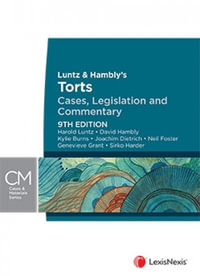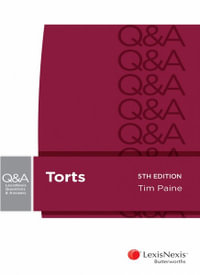In The Oxford Introductions to U.S. Law: Income Tax Law, Edward McCaffery presents an accessible introduction to the major topics in the field of federal income taxation, such as income, deductions, and recognition of gains and losses. After discussing central rules and doctrines individually, Edward McCaffery offers a very sophisticated yet clear explanation of the interplay among them, carefully describing how they work together to carry out the policy goals of the U.S. tax system.
Professor McCaffery describes, for example, how the current income tax in the United States has increasingly become a wage tax that favors those with capital rather than those whose money comes from labor. In explaining the consequences of tax policy on individuals, he also considers important possible alternatives for income taxation in the U.S.
The Oxford Introductions to U.S. Law: Income Tax Law sets forth the 'who,' 'what,' 'when,' and 'why' of income tax law and describes the essential concepts of the field in a clear and concise manner that helps students and non-experts increase their understanding of the policies behind modern tax law and the ways in which these policies affect different types of individuals.
Industry Reviews
"This is a really excellent guide to U.S. income tax that combines a powerful theoretical scaffolding with attention to important practical details. Ed McCaffery has the flair to explain clearly and entertainingly both the forest and the trees of our ill-functioning system. I will definitely recommend it to my students."
- Daniel N. Shaviro, Wayne Perry Professor of Taxation, New York University School of Law
"A concise but intellectual presentation of the U.S. income tax system - a surprisingly principled description of today's rules, lots of history of how we got here, and an elegant and timely analytic framework for evaluating proposals for change. I can't imagine a better review for a law student's basic tax course. This book has plenty of depth and breadth for LL.M. students and incipient tax lawyers as well, particularly the ruffs on tax planning. Highly
Recommended."
- William C. Gifford, Senior Counsel, Davis Polk & Wardwell LLP
























